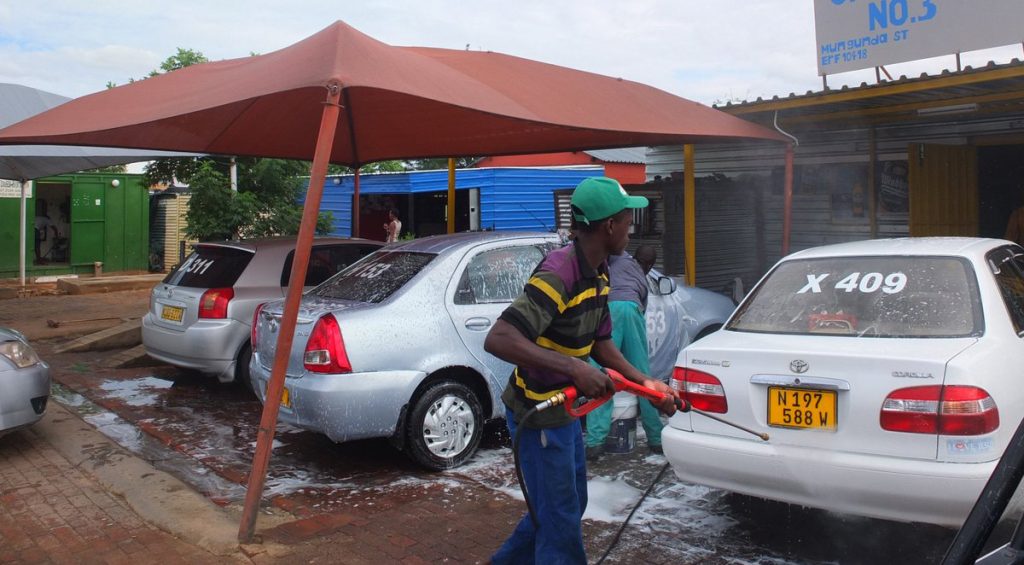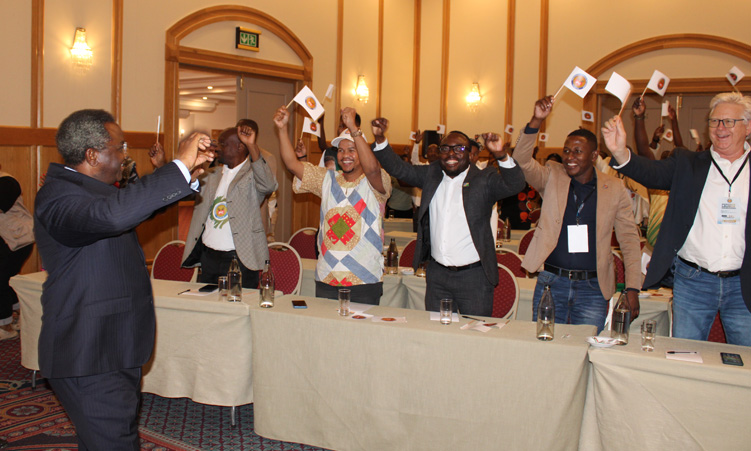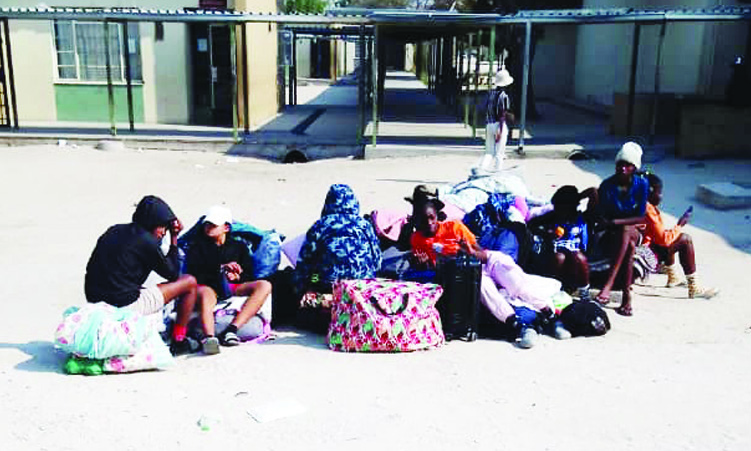Windhoek residents must aim to cut their water use by 15% and will be paying increased charges if they exceed new water consumption limits set by the City of Windhoek.
The city announced on Friday that Windhoek’s current water availability situation is classified as one of “severe scarcity” and that residents will have to cut their use of water by about 75 000 cubic metres (75 000 kilolitres) per week to enable the city to meet its water supply targets.
The Namibia Water Corporation (NamWater) is able to supply Windhoek with about 149 000 cubic metres of water per week, the office of the city’s chief executive stated in a media release on Friday.
The City of Windhoek’s water reclamation plant has the capacity to supply 112 000 cubic metres of water per week, and the city can add about 163 000 cubic metres of underground water extracted from boreholes to that weekly, according to the statement.
With Windhoek’s projected water demand at about 498 630 cubic metres per week, the available supply will leave the city with a weekly shortfall of nearly 75 000 cubic metres, which will have to be handled with a 15% decrease in the use of water by consumers.
The city recorded that it has been extracting underground water since June 2023. It was granted a permit by the Ministry of Agriculture, Water and Land Reform that allows it to extract 8,5 million cubic metres of water per year.
The City of Windhoek announced that with effect from the start of September, existing trees and shrubs in gardens and private lawns may be watered only once a week, while existing flowers may be watered by hand only twice a week.
Only semi-purified water may be used to water turf grass.
From May to the end of September, gardens and lawns may not be watered between 10h00 and 16h00. From October to the end of April, gardens and lawns may not be watered from 09h00 to 17h00.
Cars may not be washed at home and only certified car wash services are permitted to wash cars. Swimming pools must remain covered and drinking water may not be used to fill swimming pools. The operating hours of public swimming pools will also be reduced.

TARIFFS
As part of its water-saving measures, the City of Windhoek is implementing penalty rates for high consumption levels for domestic consumers and maintaining increased consumption charges to encourage reduced water use.
The first six cubic metres (6 000 litres) of water used by domestic consumers in a month cost N$24,41 per cubic metre, with the result that the city will charge N$146,46 for six cubic metres.
Consumers who use up to 25 cubic metres of water (25 000 litres) per month will be charged N$37,83 per cubic metre used in addition to the first six cubic metres, which will result in a water bill of about N$865 for 25 cubic metres.
Domestic consumers who use more than 25 cubic metres of water in a month will be charged N$75,67 per cubic metre between 25 and 30 cubic metres used, resulting in a monthly charge of N$1 390 for 30 cubic metres used.
Consumers using more than 30 cubic metres of water per month will be charged N$1 390 for the first 30 cubic metres and N$151,32 per cubic metre above 30 cubic metres.
The three surface dams from which NamWater supplies water to Windhoek and the central area of Namibia are all substantially emptier currently than a year ago, with combined contents of 22,2 million cubic metres of water (14,4% storage capacity) at the start of last week.
A year earlier, the three dams held about 47,6 million cubic metres of water (about 31% of capacity).
Swakoppoort Dam was filled to about 26% of its storage capacity at the start of last week, compared to a level of 60% a year ago.
Von Bach Dam’s level stood at 12% at the start of last week, compared to 20,2% a year ago. Omatako Dam is empty – the same condition in which it was a year earlier.
Stay informed with The Namibian – your source for credible journalism. Get in-depth reporting and opinions for
only N$85 a month. Invest in journalism, invest in democracy –
Subscribe Now!






